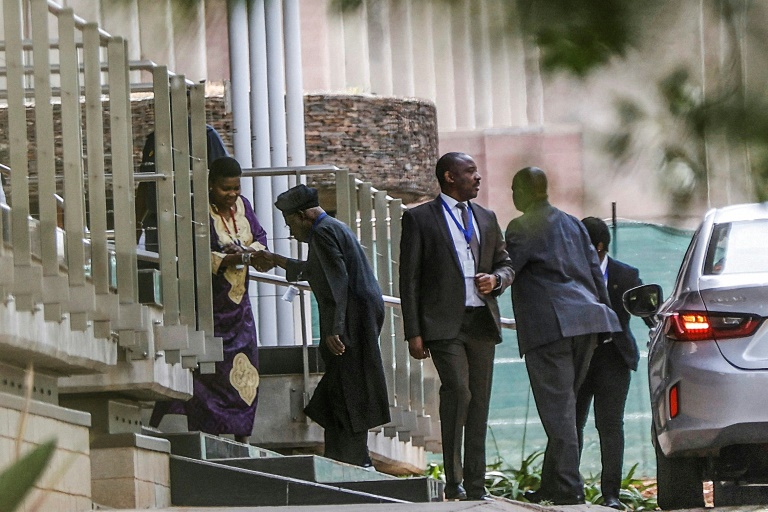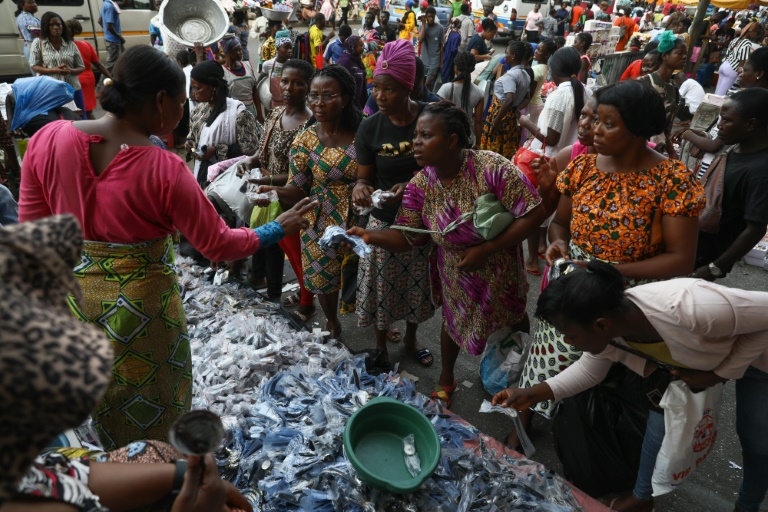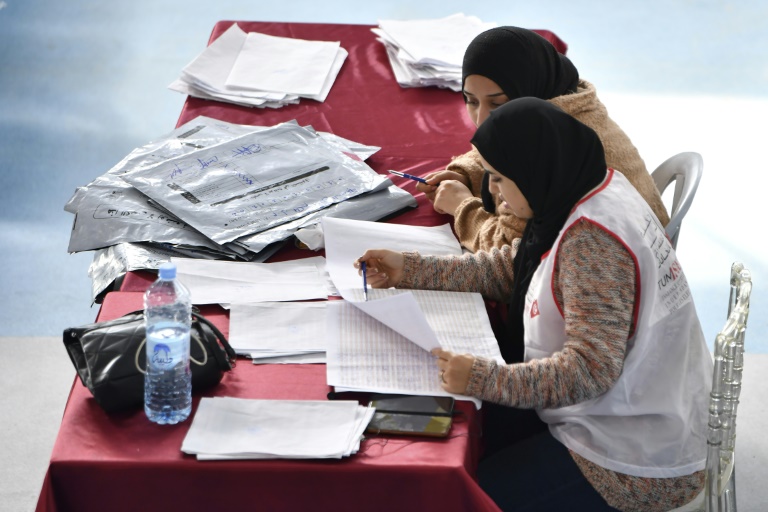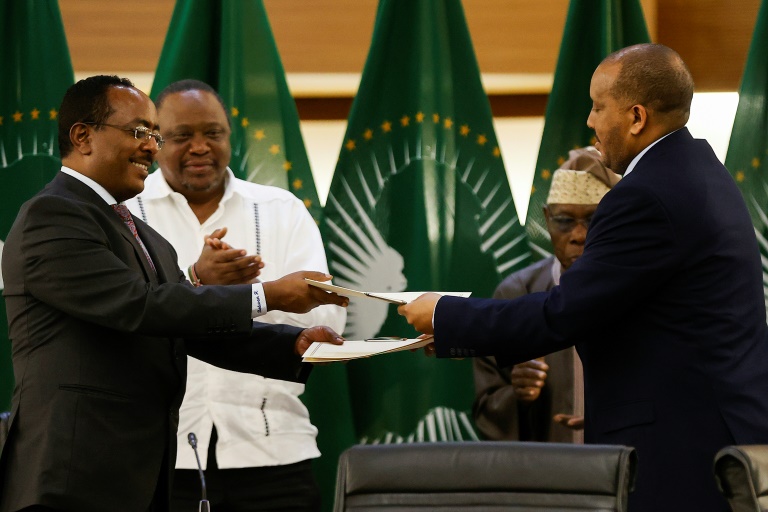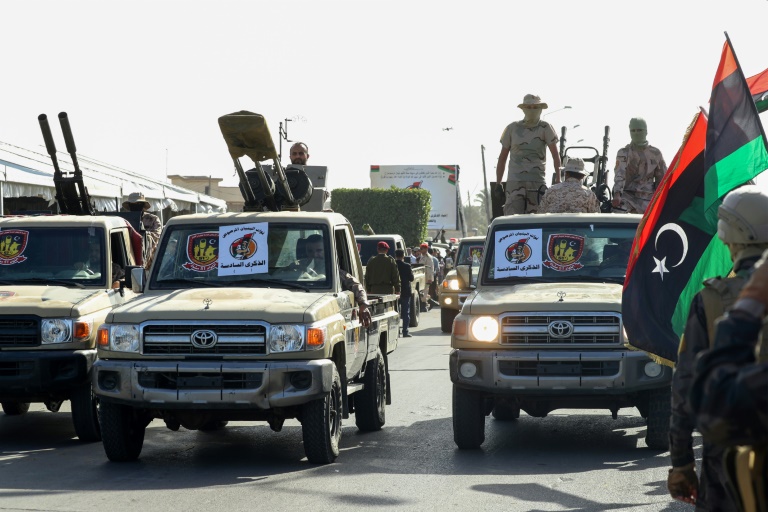African Union envoy and former Nigerian president Olusegun Obasanjo, wearing a cap, is greeted on the second day of Ethiopian peace talks
The first formal peace talks between the warring sides in the brutal two-year conflict in Ethiopia’s Tigray region entered day two in South Africa on Wednesday.
Led by the African Union (AU), the negotiations in Pretoria follow a surge in fierce fighting in recent weeks that has alarmed the international community and triggered fears for civilians caught in the crossfire.
The talks are being held at South Africa’s foreign affairs ministry headquarters.
AU Horn of Africa envoy and Nigerian former president Olusegun Obasanjo, who is the talks’ chief facilitator, was filmed and photographed by AFP journalists entering the venue on Wednesday morning.
Kenya’s ex-president Uhuru Kenyatta who is part of the mediating team, was also seen going into the building so was South Africa’s ex-vice president Phumzile Mlambo-Ngcuka.
US special envoy for the Horn of Africa Mike Hammer, is also participating in the talks.
The Pretoria dialogue — the first publicly announced talks between the rivals — opened on Monday and is due to run until Sunday, according the South African presidency.
But there has so far been a media blackout with journalists kept outside the venue’s perimeter fence, and no updates issued.
The dialogue between negotiators from the Ethiopian government of Prime Minister Abiy Ahmed and the regional authorities in war-stricken Tigray came almost two months to the day since fighting resumed, shattering a five-month truce.
The international community has been calling for an immediate ceasefire, humanitarian access to Tigray where many face hunger, and a withdrawal of Eritrean forces, whose return to the conflict has raised fears of renewed atrocities against civilians.
– ‘No military solution’ –
“There is no military solution to this conflict, and these talks represent the most promising way to achieve lasting peace and prosperity for all Ethiopians,” US Secretary of State Antony Blinken said in an overnight statement welcoming the negotiations.
AU Commission chair Moussa Faki Mahamat welcomed the launch of the process.
He said he was “encouraged by the early demonstration of commitment to peace by the parties” and reiterated the AU’s continued support for a process “to silence the guns towards a united, stable, peaceful and resilient Ethiopia.”
Diplomatic pressure has ratcheted up in recent weeks to end a war which has left millions in need of humanitarian aid and, according to a US estimate, as many as half a million dead.
The talks come as federal forces and their allies in the Eritrean army appear to be gaining the upper hand, seizing a string of towns in Tigray including the strategic city of Shire in offensives that have sent civilians fleeing.
It is impossible to verify battleground developments as Tigray — a region of six million people — is largely cut off by a communications blackout and access to northern Ethiopia is severely restricted.
An initial AU effort to bring the two sides to the negotiating table earlier this month failed, with diplomats suggesting logistical issues and a lack of preparedness were to blame.
A Western official has said secret contacts have taken place organised by the United States in the Seychelles and twice in Djibouti.
Abiy first sent troops into Tigray in November 2020, promising a quick victory over the northern region’s dissident leaders, the TPLF, after what he said were attacks by the group on federal army camps.
The move followed long-running tensions with the TPLF, which had dominated Ethiopia’s ruling coalition before Abiy came to power in 2018 and sidelined the party.
Kindeya Gebrehiwot, a spokesman for the rebel authorities in Tigray, at the weekend listed their expectations from the talks.
“Pressing: immediate cessation of hostilities, unfettered humanitarian access & withdrawal of Eritrean forces. There can’t be a military solution!” he said in a tweet.

